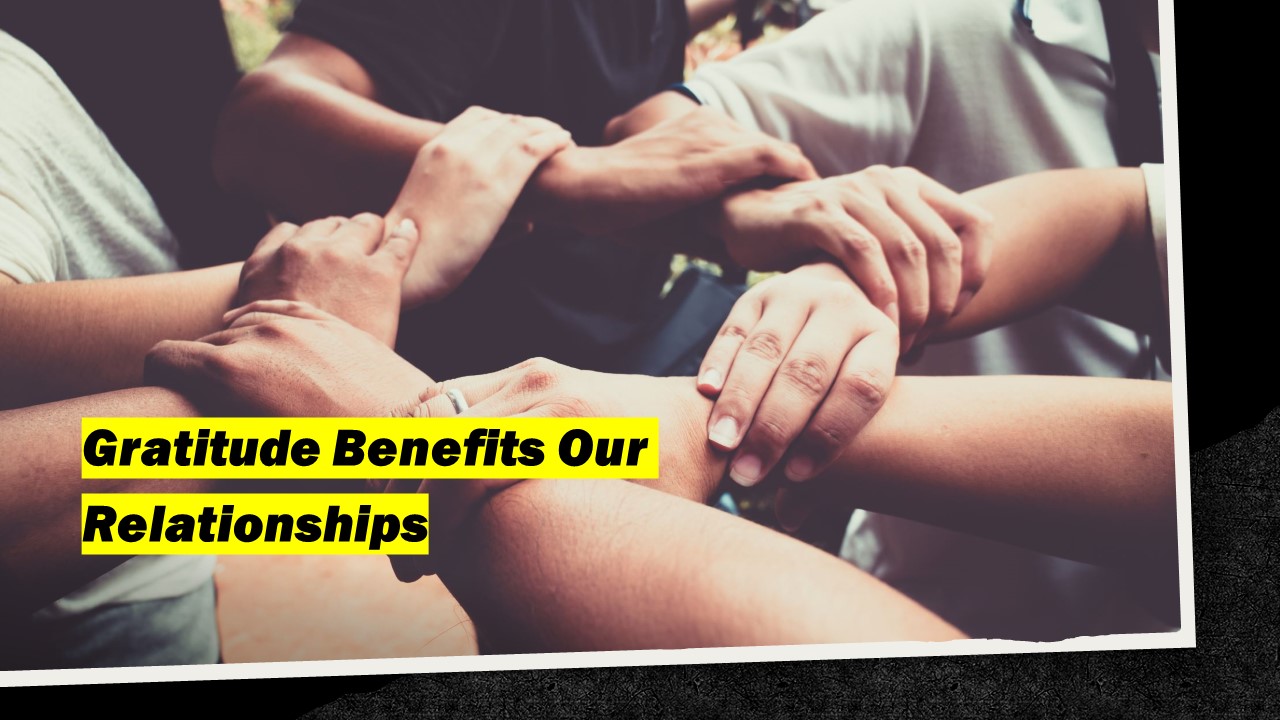Gratitude benefits are culturally normative in all major cultures, which encourage people to be grateful and express their gratitude to others. The cultural norms of gratitude have been highly valued across civilizations and cultures. In the ritual of “giving thanks,” people expressed their gratitude to God, spirits, mother nature, and others.
Interpersonal relationships commonly involve the experience and expression of gratitude. Gratitude entails more than simply saying “thank you.” It entails acknowledging and appreciating others and what they do for us. Gratitude is the thankful love—the love for what another person did or does for us. Gratitude is an important constituent of love.
Gratitude strengthens our connections with others. When individuals experience gratitude, these emotions strengthen their sense of belonging to and connectedness with others. They feel fewer boundaries between themselves and others. In another article, I explained what gratitude is and why it is important for our lives and well-being.
Gratitude Benefits Make Our Relationships Better
Social bonding entails giving and receiving on both sides. These actions are essential for the proper formation of obligations between individuals and the maintenance of interpersonal bonds within human communities.
Gratitude involves social obligations as well as personal benefits for our relationships, self-esteem, and wellbeing. Feeling and expressing gratitude improves our mood and makes us feel better. In many ways, it improves our lives and interpersonal relationships.
A Study of Gratitude Revealed:
The recent qualitative study by the researchers from Sofia University in California, Patty Hlava and John Elfers, explored how people experience the meaning of gratitude in their lives and what positive changes they get when they experience and express gratitude. In particular, they found that
Gratitude Strengthens our Connections with Others
When people experience gratitude, these emotions enhance their feelings of connectedness with others. They feel that their boundaries with another person have become shorter and softer. A range of their feelings involves the sensation of being physically close, not separate or alone. They get a sense of community, enjoy deep communication, and have the feeling of merging with something larger than themselves.
Here are the examples that authors provide to illustrate these feelings:
That feeling of being enveloped, or embraced, or being touched. It’s like they just know you, like they’ve been there forever, and you’ve been with them forever. (Goldie)
It’s more a sense of feeling connected to people, not that they’re giving me something, a material object but that they’re giving me a part of their heart or something. (Allison)
It was a sense of connectedness. I felt that even sort of our heartbeats sort of synced, just a oneness about the whole situation. (Sue)
(Hlava & Elfers, 2014, p. 438).
By experiencing and cultivating the attitudes, feelings, and expression of gratitude, people experience transformation in their personal, interpersonal, and transpersonal relationships. They experience a sense of belonging to a group, community, or something else outside themselves.
